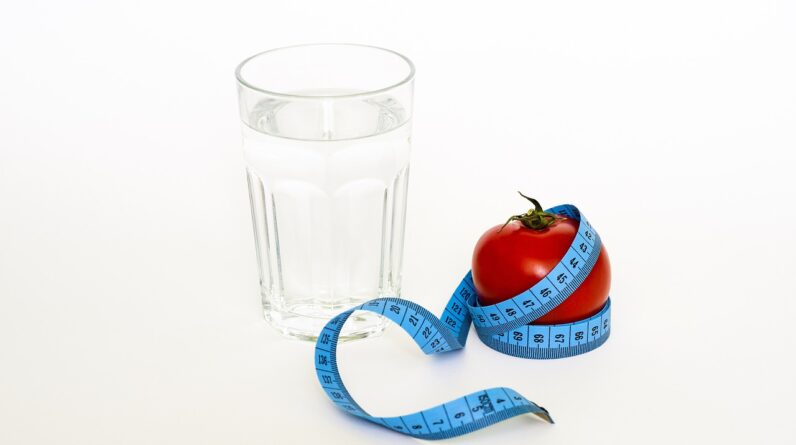
In today’s fast-paced world, achieving optimal fitness has become an increasingly important goal for many individuals. However, with an overwhelming amount of information available, finding the right path to reach this objective can be quite challenging. That is why we, as a website devoted to health and fitness, are here to provide you with the crucial information you need to achieve your fitness goals. In this article, we will specifically focus on the role of proper nutrition in optimizing your fitness journey. By exploring the impact of nutrition on our bodies and highlighting the key components of a well-balanced diet, we aim to equip you with the knowledge necessary to make informed decisions about your nutrition and ultimately enhance your overall fitness.
Achieving Optimal Fitness through Proper Nutrition
The Importance of Nutrition for Fitness
Nutrition plays a crucial role in achieving optimal fitness levels. It provides the body with the necessary fuel and nutrients to support physical activity and enhance performance. Without proper nutrition, all the time and effort spent in the gym will not yield the desired results. In fact, nutrition is often considered the foundation of fitness.
Understanding Macronutrients
Macronutrients are the nutrients required by the body in large quantities to function properly. These include carbohydrates, proteins, and fats.
1. Carbohydrates
Carbohydrates are the primary source of energy for the body. They are broken down into glucose, which is used by the muscles during exercise. Complex carbohydrates, such as whole grains, fruits, and vegetables, provide a slow and steady release of energy. On the other hand, simple carbohydrates, found in sugary foods and drinks, provide a quick energy boost but are generally less beneficial for overall health and fitness.
2. Proteins
Protein is essential for muscle growth, repair, and maintenance. It also plays a role in the production of enzymes and hormones. Good sources of protein include lean meats, poultry, fish, eggs, dairy products, legumes, and plant-based proteins like tofu and tempeh. It is important to consume an adequate amount of protein to support the development and recovery of muscles during exercise.
3. Fats
Contrary to popular belief, fats are an essential part of a healthy diet and should not be completely excluded. Healthy fats, such as those found in nuts, seeds, avocados, and fatty fish like salmon, contain omega-3 fatty acids that have numerous health benefits, including reducing inflammation and supporting brain health. However, it is important to consume fats in moderation, as they are high in calories.

This image is property of pixabay.com.
4. Vitamins
Vitamins are organic compounds that are vital for various bodily functions. They play a crucial role in energy production, immune function, and overall health. A balanced diet that includes a variety of fruits, vegetables, whole grains, lean proteins, and healthy fats should provide an adequate amount of vitamins. However, in some cases, supplementation may be necessary, especially for individuals with specific deficiencies or dietary restrictions.
5. Minerals
Minerals are inorganic substances that are essential for optimal health and bodily functions. They include calcium, iron, magnesium, potassium, and many others. These minerals are found in a wide range of foods such as dairy products, leafy greens, nuts, seeds, and whole grains. Adequate mineral intake is crucial for maintaining healthy bones, muscles, and overall physiological balance.

This image is property of pixabay.com.
The Role of Micronutrients in Achieving Fitness
While macronutrients are important, it is equally crucial to pay attention to micronutrients – the vitamins and minerals that are required in smaller quantities but still have a significant impact on overall health and fitness.
1. Antioxidants
Antioxidants are compounds that protect the body against the damaging effects of free radicals. They can be found in fruits, vegetables, nuts, and seeds. Regular intake of antioxidants can help reduce inflammation, support recovery, and enhance overall fitness.
2. Electrolytes
Electrolytes are minerals that play a crucial role in maintaining proper hydration and supporting muscle function. They include sodium, potassium, chloride, magnesium, and calcium. Electrolyte-rich foods such as bananas, oranges, leafy greens, and coconut water can help replenish these minerals after intense exercise or sweating.
3. Omega-3 Fatty Acids
Omega-3 fatty acids are a type of polyunsaturated fat that has been shown to have numerous health benefits. They support heart health, reduce inflammation, and promote brain function. Good sources of omega-3 fatty acids include fatty fish like salmon, flaxseeds, chia seeds, and walnuts.
4. Phytonutrients
Phytonutrients are plant compounds that have been shown to have various health benefits. They act as antioxidants, reduce inflammation, and support overall well-being. Examples of phytonutrients include lycopene in tomatoes, resveratrol in grapes, and curcumin in turmeric. Including a variety of colorful fruits, vegetables, herbs, and spices in your diet can help ensure an adequate intake of phytonutrients.
Creating a Balanced Meal Plan
To achieve optimal fitness, it is important to create a balanced meal plan that provides the body with the necessary nutrients in the right proportions. Here are some key considerations when designing a meal plan:
1. Determining Caloric Needs
Before creating a meal plan, it is essential to determine your caloric needs. This can be done by considering factors such as age, sex, weight, activity level, and fitness goals. Consulting with a registered dietitian or using online calculators can help provide a more accurate estimate of your caloric needs.
2. Filling the Plate with Color
Aim to fill your plate with a variety of colorful fruits and vegetables. These nutrient-dense foods provide essential vitamins, minerals, and phytonutrients. Including a range of different colors ensures a diverse intake of nutrients that can help support overall health and fitness.
3. Meal Timing and Frequency
Establishing a regular eating pattern can help sustain energy levels throughout the day and support optimal performance during workouts. Aim for 3-4 balanced meals and 1-2 snacks per day. It is also important to time your meals and snacks according to your workout schedule to ensure adequate fueling and recovery.
4. Hydration and Fitness
Proper hydration is essential for optimal fitness. Water helps regulate body temperature, lubricate joints, and transport nutrients to cells. It is recommended to drink water throughout the day, especially before, during, and after exercise. Additionally, electrolyte-rich beverages such as sports drinks can be beneficial for prolonged or intense workouts.

This image is property of pixabay.com.
Fueling for Different Types of Workouts
Different types of workouts require different fueling strategies to optimize performance and recovery. Here are some guidelines for fueling before, during, and after workouts:
1. Pre-Workout Nutrition
Before a workout, it is important to consume a balanced meal or snack that includes carbohydrates, protein, and a small amount of fat. Carbohydrates provide energy, while protein helps support muscle synthesis. Opt for easily digestible foods such as a fruit and yogurt smoothie, a peanut butter and banana sandwich, or a bowl of oatmeal with berries.
2. Post-Workout Nutrition
After a workout, it is crucial to replenish the body’s energy stores and support muscle repair. Aim to consume a combination of carbohydrates and protein within 30-60 minutes after exercise. This can be achieved through sources such as a protein shake, grilled chicken with quinoa, or a bowl of Greek yogurt with fruit and nuts.
3. Nutrition During Prolonged Exercise
For prolonged workouts lasting more than 60-90 minutes, it is important to consume additional carbohydrates to sustain energy levels. Sports drinks, energy gels, or easily digestible snacks like bananas or energy bars can help provide the necessary fuel to keep going.
Common Pitfalls and Tips for Success
When it comes to nutrition and fitness, there are common pitfalls that can hinder progress. Here are some tips to avoid these pitfalls and achieve success:
1. Avoiding Fad Diets
Fad diets often promise quick results but are not sustainable in the long term. Instead of following restrictive diets, focus on consuming a balanced and varied diet that includes all the necessary nutrients. Make sustainable choices that can be maintained for a lifetime.
2. Reading Food Labels
Reading food labels is crucial to understand the nutritional content of the products you consume. Pay attention to portion sizes, total calories, macronutrient breakdowns, and ingredient lists. Choose whole, unprocessed foods whenever possible and limit the intake of added sugars and unhealthy fats.
3. Meal Prepping and Planning
Meal prepping and planning can help ensure that healthy meals and snacks are readily available, even during busy times. Set aside time each week to plan your meals, grocery shop, and prepare meals in advance. This will help you make better choices and avoid grabbing unhealthy options on the go.
4. Seeking Professional Advice
If you are unsure about your nutritional needs or have specific dietary goals, it is advisable to seek professional advice from a registered dietitian or nutritionist. They can provide personalized guidance and recommendations based on your individual needs and help you achieve optimal fitness through proper nutrition.

Supplementing for Optimal Fitness
While a well-balanced diet should provide all the necessary nutrients for optimal fitness, certain supplements can help enhance performance and support recovery. Here are some commonly used supplements in the fitness community:
1. Protein Powders
Protein powders are a convenient way to increase protein intake, especially for individuals who have higher protein requirements or struggle to meet their needs through food alone. They can be added to smoothies, shakes, or used as a post-workout recovery drink.
2. Creatine
Creatine is a naturally occurring compound that helps provide energy to muscles during high-intensity activities. It has been shown to increase strength, power, and lean body mass. However, it is important to consult with a healthcare professional before starting creatine supplementation.
3. Branched-Chain Amino Acids
Branched-chain amino acids (BCAAs) are essential amino acids that play a role in muscle protein synthesis. They can be taken in supplement form to support muscle recovery and reduce exercise-induced muscle damage. However, it is important to ensure adequate overall protein intake as well.
4. Omega-3 Supplements
Omega-3 fatty acid supplements, typically derived from fish oil, can be beneficial for individuals who do not consume enough fatty fish in their diet. They have been shown to have anti-inflammatory properties and support heart health. As with any supplement, it is important to choose a reputable brand and follow dosage recommendations.
In conclusion, achieving optimal fitness requires paying attention to proper nutrition. Understanding the importance of macronutrients, micronutrients, creating a balanced meal plan, fueling appropriately for different types of workouts, avoiding common pitfalls, seeking professional advice, and considering appropriate supplementation can help individuals reach their fitness goals and maximize their overall health and well-being. With a combination of regular exercise and a well-rounded diet, individuals can optimize their fitness through proper nutrition.






